History of The Poptones
1986-1988: The Carlos Herrera Years
In 1986, in Jagodina, a small town in central Serbia, four high school kids gathered together and formed a pop-band. They named the band Carlos Herrera (after a character from some of Balzac's novels). The members of Carlos Herrera were Boxy (1969, vocal, guitar), Kica (1969, vocal, guitar), Vladica (1968, bass) and Ivan (1969, drums). They spent a couple of years learning to play their instruments, covering rock standards and composing some original songs. The band performed regularly on the local music scene, and enjoyed moderate success. The girls liked it, anyway. Vladica was the first one to be drafted, in 1987, and he was replaced by Gisa (1971). The following year everyone else was drafted, and that was the end of Carlos Herrera.
1989-1992: The Poptones, The First Incarnation
Military service behind them, the members of the band moved to Belgrade, the capital of Serbia and a university centre, where they began their studies (Boxy: technology, Kica: civil engineering, Vladica: history, Ivan: literature). At the same time, band-wise, they tried to pick up where they left off a year earlier. The personnel changed once more: Vladica decided he had enough of playing music, and the replacement was found in Radujko (1969), a friend and a fellow musician from Jagodina, at the time a student of mathematics. The change in personnel was not the only one, though: the band decided to start writing lyrics for their songs in English, and to change the name of the band to a more appropriate one: The Poptones.
From then on, everything seemed to work out fine for the band: during the following three years they had several studio sessions which resulted in material that regularly made the top five on the demo-charts of the local and national television (the famous "Afirmator" TV show) and radio stations. The public at the gigs liked the band, and so did the critics: after a fine debut at the pop festival "Brzi bendovi Srbije" (meaning "The Fast Bands of Serbia") in 1991, in 1992 at the Festival's sequel "Brži bendovi Srbije" ("The Faster Bands of Serbia") The Poptones won the award for Best Pop Band of the Year.
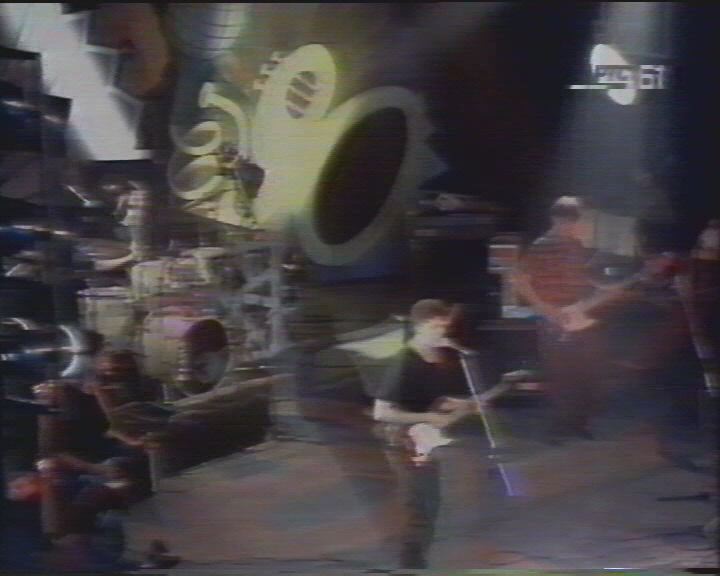
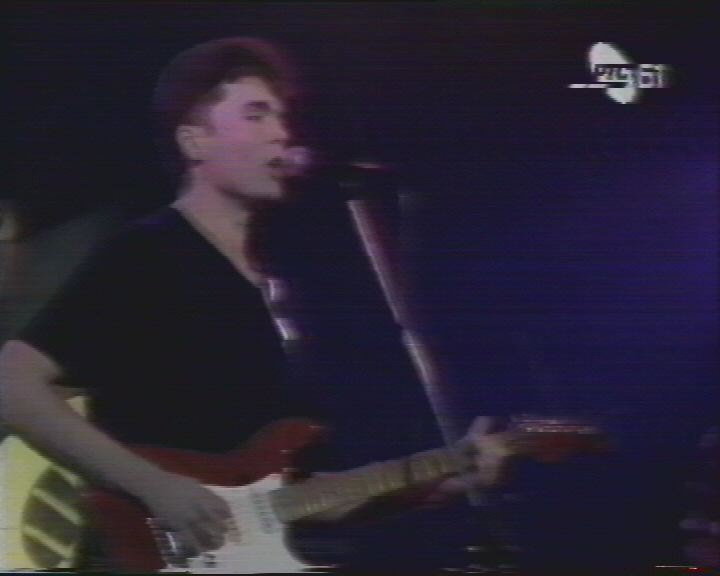
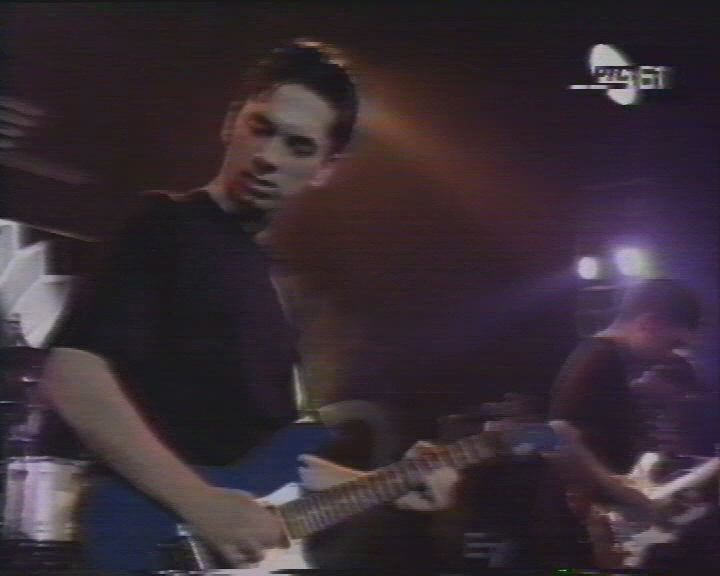
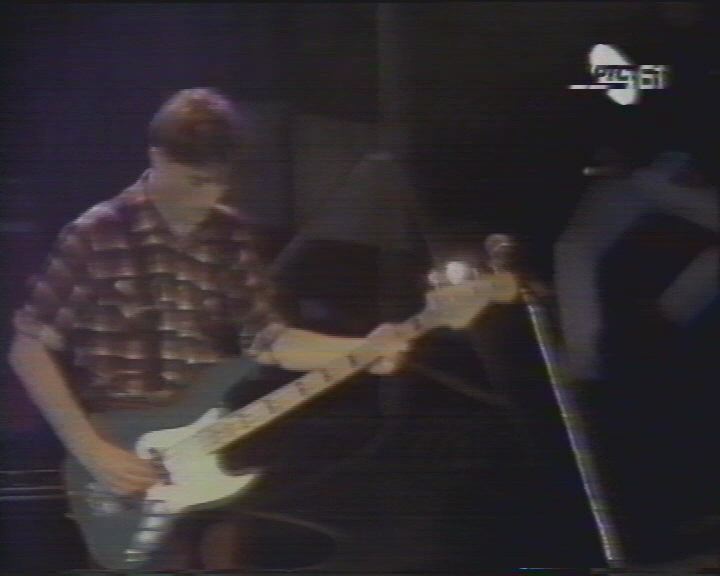
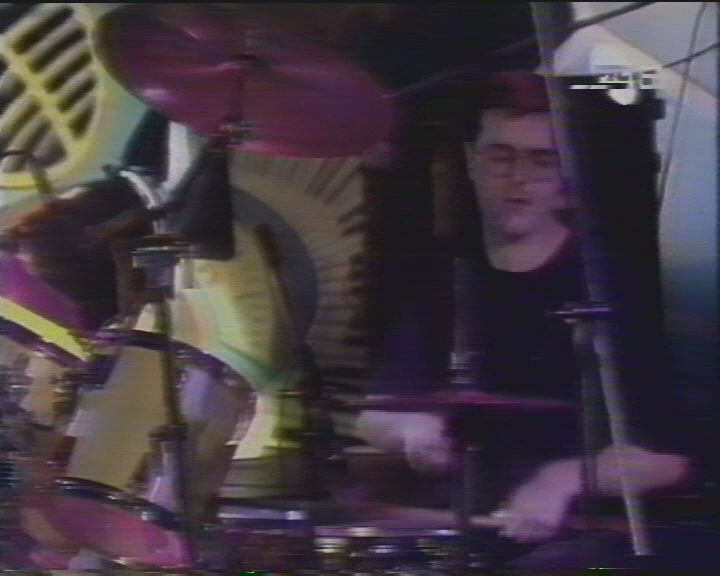
It was time for an album and a major breakthrough, but the timing
was bad: the war was flaming all around, the hyperinflation made
mere survival extremely difficult, and everybody's spirits were
way down. Instead of breaking through, The Poptones broke apart:
Boxy left the band in order to put all of his energy and time
to his studies, while Radujko left to pursue different modes of music
involvement (today he maintains computer networks and works as a session player /
studio producer in London, UK).
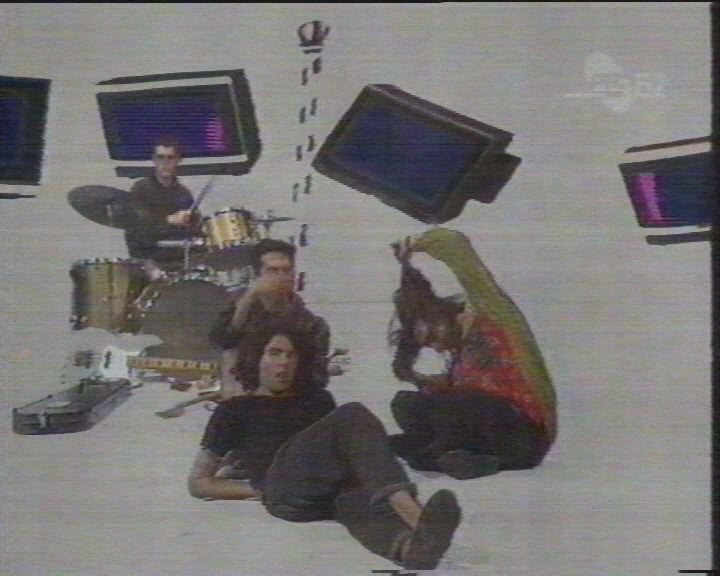
1993-1996: Still Alive, But Not Kicking Very Much
The band was down to Kica and Ivan now. While finishing their studies, they tried working with different bass players, but had no success in finding the right one. In 1995 there was a 6 months pause: Ivan won the Japanese "Sasakawa" scholarship for graduates, and went to France, to do some research work. Meanwhile, Kica was passing his exams. In 1996, back together again, they decided they wouldn't seek another guitar player, but play as a trio instead. Finally, the third member was found: it was Cufta (1973), who also kept his positions as the bass player in Orthodox Celts, a Belgrade band playing traditional Irish music, as well as in Stocari, a Belgrade-based bluegrass band (which would eventually also be joined by Ivan).
1997-1999: The Right Form
The band rehearsed busily, re-arranging old songs to fit the new guitar-bass-drums formation, and wrote new songs. Gigs were not too frequent, but always successful. Again, it was time to record the long awaited debut album.
2000 - 2001: Slow Years
In September 1999, when the album was out, Kica announced to the band that he had to quit his job in Belgrade and move to Banja Luka (Republika Srpska, Bosnia and Herzegovina). Even though geographically not very far away, he could not be in Belgrade as often as the band needed. That meant that the promotion of Bordello was more or less down to the video for the first single, "The Guided Tour", being played by the local and national television stations. The public greeted it with acclaim, but the band had to regretfully decline almost all of the numerous invitations for live appearances, thus giving up their strongest weapon. (At this time, having realized that bluegrass had very slim chances of ever becoming a popular musical genre in Yugoslavia, Stocari disbanded, and Cufta also left Orthodox Celts, due to personal differences; thus all three members of The Poptones were forced to a complete abstinence from music.)
By the end of the year 2000, with the political situation in Serbia dramatically improving, Kica had another announcement to make to the band: finally he would be able to come back. The following year, in the spring, he returned to Serbia -- not to Belgrade, though, but to Novi Sad (the capital of Serbia's northern autonomous province, Vojvodina, some 90 kilometres from Belgrade), where he and the wife (blessed with three boys) found employment as civil engineers.
2002: Digital tendencies
Not living in the same city, The Poptones decided that the most convenient way for them to continue creating music would be to do so with the aid of computers and Internet communication. This does not mean they are going techno -- the music will not change very much. Just how much it will change remains to be heard; stay tuned and come back to the site periodically, because the first results of their digital adventure will be available here, as downloadable mp3s.
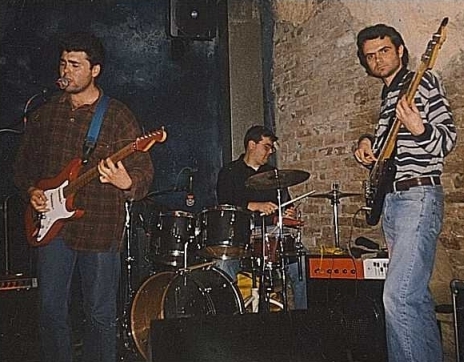
Left to right: Kica, Ivan, Cufta